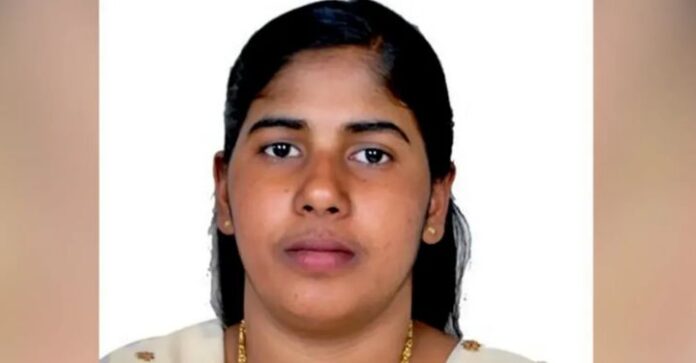In a dramatic and emotionally charged development, the execution of Nimisha Priya, an Indian nurse from Kerala sentenced to death in Yemen, has been temporarily postponed. The decision comes just a day before her scheduled execution on July 16, 2025, providing a narrow but significant window for renewed legal and diplomatic intervention.
The stay has been described as a result of persistent efforts from Indian activists, legal experts, religious leaders, and civil society groups, all working to avert a potentially irreversible tragedy. For Nimisha’s family, supporters, and countless well-wishers in India and abroad, the news offers a fragile sense of hope as negotiations continue behind the scenes.
A Long Legal Struggle
Nimisha Priya, a trained nurse from Kollengode in Kerala’s Palakkad district, travelled to Yemen in 2008 to work at a private clinic. She later entered into a business arrangement with Talal Abdo Mahdi, a Yemeni national, to run a clinic in Sana’a. This relationship, however, deteriorated under complex and reportedly abusive circumstances.
According to Nimisha’s account, Mahdi confiscated her passport, forged marriage documents, and subjected her to physical and sexual abuse. In an attempt to retrieve her passport and return to India with her daughter, Nimisha is said to have administered sedatives to Mahdi in July 2017, which allegedly led to his accidental death. The case escalated when she and a co-accused attempted to dispose of the body to avoid legal repercussions.
She was arrested, charged with premeditated murder, and sentenced to death in 2018 by a Yemeni court. That sentence was upheld in 2020. Under Yemeni and Sharia law, however, death penalties can be commuted if the victim’s family accepts diyah (blood money), essentially a form of compensation in exchange for forgiveness.
The Path to Postponement
The execution, originally scheduled for July 16, was deferred following multiple high-level interventions. While the Indian government has no diplomatic presence in war-torn Yemen, efforts were made through alternative diplomatic and community-based channels.
One of the pivotal developments was the involvement of prominent Islamic clerics, particularly Kanthapuram A.P. Aboobacker Musliyar, a well-respected leader in Kerala’s Sunni Muslim community. He initiated religious diplomacy by connecting with Yemeni scholars and tribal leaders with influence over the victim’s family.
These spiritual interventions led to direct communication with relatives of Talal Mahdi, and according to sources involved, signs of a potential compromise began to emerge. These discussions, coupled with public appeals and behind-the-scenes coordination, ultimately led Yemeni authorities to suspend the execution—at least temporarily.
Government’s Role and Limitations
The Ministry of External Affairs (MEA) in India has been involved in supporting Nimisha’s case since her arrest, though its role has been limited by the lack of a diplomatic mission in Yemen due to the ongoing civil war. Indian officials have instead relied on the Indian Embassy in Djibouti and coordination with third-party countries, such as Iran and Oman, to facilitate discussions.
In a recent affidavit submitted to India’s Supreme Court, Attorney-General R. Venkataramani explained that the government had reached the maximum extent of its diplomatic capabilities. He reiterated that “any solution now depends entirely on whether a blood money agreement can be reached with the victim’s family.”
Grassroots Campaign and Fundraising
At the heart of the public effort to save Nimisha is the Save Nimisha Priya International Action Council, a consortium of volunteers, lawyers, and human rights advocates. The council has been raising funds for months to meet the diyah demand, which some reports estimate to be as high as $1 million (approximately ₹8.5 crore).
Support has poured in from the Indian diaspora, particularly Keralite communities in the Middle East. Several NGOs have also stepped forward to assist with logistics, legal representation, and advocacy.
Emotional Appeal and Family’s Fight
Nimisha’s mother, Prema Kumari, has been in Yemen since early 2024, trying to personally appeal to the family of the deceased and plead for mercy. Her presence in Sana’a during these negotiations underscores the emotional gravity of the situation. In multiple media interviews, she has broken down, appealing to both the Indian public and Yemeni tribal elders to spare her daughter.
Nimisha’s daughter, currently residing in Kerala, is being raised by relatives. Family members have said the delay in execution has revived their hope that the 12-year-old girl might yet be reunited with her mother.
The Role of Yemeni Law and Custom
The legal framework in Houthi-controlled Yemen allows for the death penalty in cases of intentional murder. However, the system is deeply influenced by tribal laws, Islamic jurisprudence, and local customs. This makes resolution especially complex, as decisions often require the blessing not only of judicial authorities but also of family elders and tribal leaders.
Furthermore, the Houthi regime in Sana’a has shown limited flexibility in foreign cases, making this postponement a rare gesture—one that appears to stem more from religious and humanitarian appeals than formal legal interventions.
What Happens Next?
Although the execution is currently postponed, the threat has not been permanently removed. A final decision now rests with the victim’s family, who hold the exclusive right to forgive Nimisha and accept the blood money. Negotiations are ongoing, and both Indian and Yemeni intermediaries are cautiously optimistic.
Legal observers note that the reprieve is only temporary, and if an agreement is not reached soon, a new execution date could be set at any time.
Conclusion
The temporary stay of execution for Nimisha Priya has been hailed as a moral and strategic victory for human rights advocates, legal teams, and religious leaders. However, this is far from the end of her ordeal. A permanent resolution lies in sensitive and delicate diplomacy involving culture, compassion, and negotiation.
As the world watches, India waits—hoping that this pause can become a turning point, and that Nimisha Priya may yet return home to rebuild her life and be reunited with her daughter.

